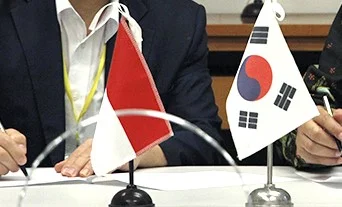Le Grand Bleu: Investment Promotion on a Pacific Scale
/The Pacific, covering around a third of the world’s surface, is unparalleled in its vastness, and yet despite its size, and the considerable amount of time needed to cross it (or often even parts of it), a sense of shared challenges fosters a spirit of solidarity and even community among the widely dispersed and small group of investment promoters of this oceanic region, while shared opportunities also still encourage ‘coopetition’.
Over the past couple of years, I have had the privilege of visiting the Pacific region on multiple occasions. While my trips have been limited to Fiji and the Solomon Islands, I have also had the pleasure of meeting investment promoters from all over the Pacific, as part of a World Bank Investment Promotion Certification Course I co-delivered for officials from twelve Pacific countries. This region covers countries with many shared economic, geological and climate-related characteristics, but also a wide range of challenges that range from societal and economic in nature, to existential – in the case of some low-lying atoll nations.
Tourism is the most high-profile sector of investment opportunity one would understandably expect from the region. Pretty much every Pacific nation has breathtaking natural ‘fundamentals’ with which to build a thriving tourism industry, and yet there are vast differences in the extents to which these industries have been developed. One only need contrast Fiji and its highly-developed mid- to high-end tourism offering, which has led to demand vastly outstripping supply, with the Solomon Islands, which despite an array of breathtaking beauty spots and proximity to Australia, has yet to establish a single international brand hotel.
beauty in the midst of decay: roderick bay, solomon islands, is an unusual yet captivating location to spend a brief getaway from the capital, honiara. solomon islands’ natural assets for tourism abound, and yet the country has yet to attract a single international brand hotel.
Fisheries is another obvious industry for the nations of the world’s largest ocean. Kiribati, for example, may only have a tiny landmass with its set of atolls, yet these are spread over an oceanic area greater than the entire land area of the USA. Closer to larger landmasses, Papua New Guinea also has significant fisheries investment potential, through a combination of natural resources and its partnerships with large consumer markets like Australia.
And then there are sectors one might associate less with the region – outsourced services being a case in point. Fiji may be renowned for its sun and sand, but it is also increasingly becoming known for its support centres and other technical outsourced services. Agribusiness (particularly for the larger landmasses), also presents opportunities, as does niche manufacturing.
Singing together, and solo…
Many of the Pacific Island nations have limited financial and human resources to devote to often costly and time-intensive investment promotion efforts. This has meant targeting these resources wisely, and even pooling resources to act collectively and with key global partners, have become important. Pacific Trade Invest (PTI) serves as the trade and investment promotion network of the Pacific Islands Forum Secretariat (PIFS) and is funded though a combination of the Pacific Islands governments, as well as key partners, including the governments of Australia, New Zealand and China. Peer-to-peer exchanges and knowledge sharing also regularly take place between the region’s IPAs.
Collaboration nevertheless has its limits when multiple countries are courting often similar types of investment, and so building or enhancing national investment attraction capabilities remains important. In the Pacific, dedicated IPAs such as Investment Fiji have been undertaking major strides to strategically realign their service offerings and sectoral focus in line with investor needs and the most promising areas of opportunity. Meanwhile, other markets will continue to house their investment promotion function within ministries or agencies with broader mandates – reflecting the need to consolidate and optimise limited resources.
Whichever model is chosen, what is clear is that the Pacific Island nations, despite their small market sizes, will continue to offer an increasing array of strategically interesting investment project opportunities that can help spur not only socio-economic development, but also help protect or enhance their host countries’ often fragile environments and natural ecosystems.









